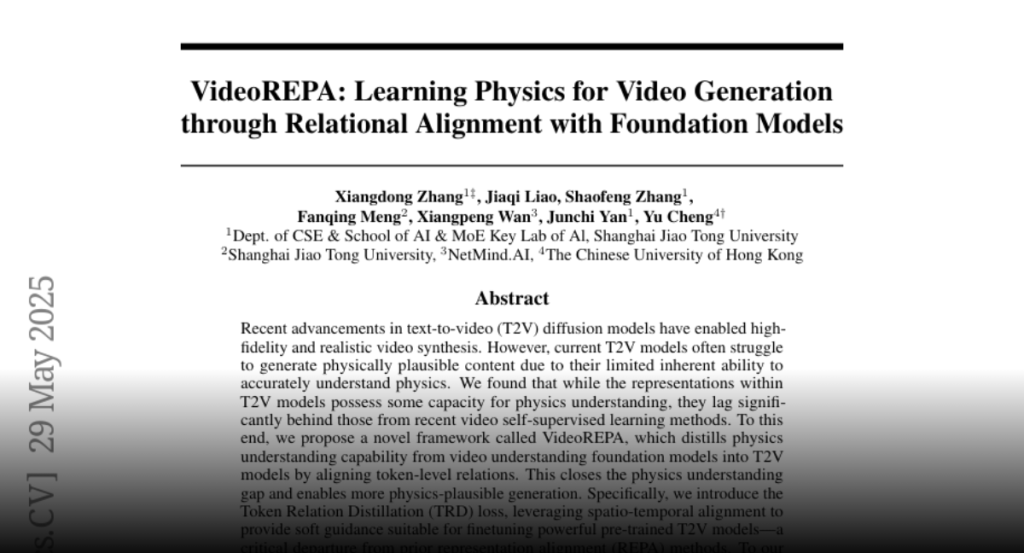VideoREPA enhances text-to-video synthesis by aligning token-level relations and distilling physics understanding from foundation models into T2V models.
Recent advancements in text-to-video (T2V) diffusion models have enabled
high-fidelity and realistic video synthesis. However, current T2V models often
struggle to generate physically plausible content due to their limited inherent
ability to accurately understand physics. We found that while the
representations within T2V models possess some capacity for physics
understanding, they lag significantly behind those from recent video
self-supervised learning methods. To this end, we propose a novel framework
called VideoREPA, which distills physics understanding capability from video
understanding foundation models into T2V models by aligning token-level
relations. This closes the physics understanding gap and enable more
physics-plausible generation. Specifically, we introduce the Token Relation
Distillation (TRD) loss, leveraging spatio-temporal alignment to provide soft
guidance suitable for finetuning powerful pre-trained T2V models, a critical
departure from prior representation alignment (REPA) methods. To our knowledge,
VideoREPA is the first REPA method designed for finetuning T2V models and
specifically for injecting physical knowledge. Empirical evaluations show that
VideoREPA substantially enhances the physics commonsense of baseline method,
CogVideoX, achieving significant improvement on relevant benchmarks and
demonstrating a strong capacity for generating videos consistent with intuitive
physics. More video results are available at https://videorepa.github.io/.

